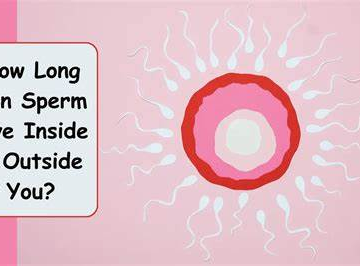
Does Smoking Lower Sperm Count?
Hey there! If you’ve ever wondered about how your lifestyle choices might affect your future family plans, you’re not alone. One question that pops up a lot is: Does smoking lower sperm count? It’s a big deal for anyone thinking about starting a family—or even just curious about how habits like smoking impact the body. In this deep dive, we’re going to explore everything you need to know about smoking and sperm health, backed by science, sprinkled with practical tips, and loaded with fresh insights you won’t find everywhere else. Let’s light up the facts (pun intended) and get started!
What’s the Deal with Smoking and Sperm Count?
Smoking is one of those habits that’s been linked to all sorts of health problems—heart disease, lung issues, you name it. But when it comes to sperm count, things get a little more personal. Sperm count is just what it sounds like: the number of sperm in a man’s semen. It’s a key player in male fertility because, simply put, you need enough swimmers to reach the finish line (aka the egg).
So, does smoking mess with that number? The short answer is yes, but there’s a lot more to unpack here. Cigarettes aren’t just nicotine—they’re a cocktail of over 4,000 chemicals, including some nasty ones like tar, carbon monoxide, and heavy metals. These toxins don’t just stay in your lungs; they travel through your bloodstream and can hit your reproductive system hard.
The Science Says…
Studies have been digging into this for years, and the evidence keeps piling up. A 2015 review from the National Institutes of Health found that men who smoke tend to have lower sperm counts compared to non-smokers. On average, smokers saw a 15-20% drop in sperm concentration. That’s not just a small dip—it could mean the difference between “fertile” and “struggling to conceive.”
But it’s not just about the numbers. Smoking also messes with sperm motility (how well they swim) and morphology (their shape). Think of it like this: if sperm are little race cars, smoking doesn’t just reduce the number of cars—it also gives them flat tires and wonky steering.
Why Should You Care?
If you’re not planning kids right now, you might think, “Eh, I’ll deal with this later.” But here’s the kicker: sperm health isn’t just about fertility—it’s a window into your overall wellness. Poor sperm quality has been linked to bigger health risks down the road, like heart problems or even early aging. Smoking’s effects on sperm might be telling you something about what’s happening in the rest of your body.
How Does Smoking Hurt Sperm? Breaking Down the Damage
Alright, let’s get into the nitty-gritty. How exactly does lighting up a cigarette sabotage your sperm? It’s not just one thing—it’s a team effort by all those toxic chemicals. Here’s the breakdown:
1. Oxidative Stress: The Silent Sperm Killer
Cigarettes pump your body full of free radicals—unstable molecules that wreak havoc on cells. This creates something called oxidative stress, which is like rust forming on your sperm. A 2019 study from Human Reproduction showed that smokers have higher levels of oxidative stress in their semen, which damages sperm DNA. Damaged DNA? That’s bad news for making healthy babies.
2. Hormones Go Haywire
Your sperm factory (aka your testes) needs the right hormones to run smoothly—think testosterone and friends. Smoking throws a wrench in that system. Research from Fertility and Sterility found that smokers often have lower testosterone levels, which can slow down sperm production. It’s like cutting the power to the assembly line.
3. Blood Flow Takes a Hit
Sperm need a steady supply of oxygen and nutrients, delivered by your blood. Smoking narrows blood vessels and reduces circulation—yep, even down there. A 2020 study in Andrology linked poor blood flow in smokers to lower sperm counts and weaker motility. Imagine trying to grow a garden with a clogged hose.
4. Toxins Sneak Into Semen
Here’s a wild fact: traces of tobacco chemicals have been found in smokers’ semen. A 2013 study in Reproductive Toxicology detected nicotine and its byproducts hanging out with sperm. These toxins don’t just sit there—they mess with how sperm move and function, making it tougher for them to reach the egg.
The Numbers Don’t Lie: What Studies Show About Smoking and Sperm
Let’s put some hard data on the table. Scientists have been tracking this for decades, and the results are pretty consistent. Here’s what the latest research tells us:
-
- Sperm Count Drop: A 2021 meta-analysis of over 5,000 men found that smokers had a 13-17% lower sperm count than non-smokers. Heavy smokers (20+ cigarettes a day) saw even bigger drops—up to 25%.
-
- Motility Issues: That same study showed a 10-15% reduction in sperm motility among smokers. Slow swimmers = less chance of winning the race.
-
- Shape Problems: Smokers’ sperm are more likely to have weird shapes—like two heads or coiled tails. A 2017 study in Environmental Health Perspectives pegged this increase at 5-10% compared to non-smokers.
-
- DNA Damage: A 2022 paper in Journal of Urology found that smokers had 20% more sperm with fragmented DNA. That’s a big deal for fertility and baby health.
A Quick Table to Sum It Up
| Sperm Factor | Smokers | Non-Smokers | Difference |
|---|---|---|---|
| Count (million/mL) | 40-50 | 50-60 | -15-20% |
| Motility (%) | 45-50% | 55-60% | -10-15% |
| Normal Shape (%) | 60-65% | 70-75% | -5-10% |
| DNA Damage (%) | 25-30% | 10-15% | +15-20% |
Note: Numbers are averages from multiple studies. Your mileage may vary!
Does How Much You Smoke Matter?
You might be thinking, “Okay, but what if I only smoke a couple cigarettes a day? That’s not so bad, right?” Well, let’s talk about dose dependency. The more you smoke, the worse it gets—but even light smoking isn’t off the hook.
-
- Heavy Smokers (20+ cigarettes/day): These guys take the biggest hit. Studies show a steep decline in sperm count—sometimes dropping below the World Health Organization’s “fertile” threshold of 15 million/mL.
-
- Moderate Smokers (10-19/day): Still rough. You’re looking at a 10-15% drop in sperm count and noticeable motility issues.
-
- Light Smokers (<10/day): Even a few puffs hurt. A 2018 study found that light smokers had a 5-10% lower sperm count than non-smokers. It’s less dramatic, but it adds up over time.
Real-Life Example
Picture this: Jake smokes 5 cigarettes a day—nothing crazy, right? Over a year, that’s still over 1,800 cigarettes. His sperm count might dip from 50 million/mL to 45 million/mL. Doesn’t sound like much, but if his partner’s fertility isn’t perfect either, that 10% could tip the scales.
Beyond Cigarettes: What About Vaping and Secondhand Smoke?
Cigarettes aren’t the only smoking game in town. Let’s explore some twists on the theme that don’t get enough airtime.
Vaping: A Safer Bet?
Vaping’s marketed as the “healthier” alternative, but is it sperm-friendly? Not so fast. A 2023 study in Fertility and Sterility tested e-cigarette liquid on rats and found nicotine (even without tobacco’s extras) still lowered sperm count and motility. Plus, those fruity vape flavors? They’ve got chemicals like propylene glycol that might mess with sperm DNA. Human studies are still catching up, but early signs say vaping’s not a free pass.
Secondhand Smoke: Silent Damage
You don’t even have to smoke to feel the sting. A 2020 study in Environmental Research found that men exposed to secondhand smoke had 10% lower sperm counts and more DNA damage than those in smoke-free zones. Living with a smoker? Working in a smoky bar? Your sperm might be paying the price.
Chew or Snuff: Smokeless Trouble
What about tobacco you don’t inhale? Smokeless tobacco (like chew or snuff) still delivers nicotine and toxins through your mouth. A 2016 study in Andrologia linked it to lower testosterone and sperm quality—not as bad as smoking, but still a red flag.
Interactive Quiz: How Much Do You Know About Smoking and Sperm?
Let’s make this fun! Take a quick quiz to test your knowledge—and stick around for the answers below.
-
- True or False: Smoking only affects sperm count, not their shape.
-
- How much can heavy smoking lower sperm count?
-
- A) 5%
-
- B) 25%
-
- C) 50%
-
- How much can heavy smoking lower sperm count?
-
- Does secondhand smoke impact sperm?
-
- Yes or No
-
- Does secondhand smoke impact sperm?
Answers: 1. False (it affects shape too!) 2. B (25%) 3. Yes
How’d you do? Drop your score in the comments—I’d love to hear!
Can You Bounce Back? Quitting and Sperm Recovery
Here’s the good news: your sperm aren’t doomed forever. Quitting smoking can turn things around. Sperm regenerate every 74 days or so, meaning you’ve got a fresh shot every couple of months.
What Happens When You Quit?
-
- 3 Months: A 2017 study in Reproductive Biology and Endocrinology found that sperm count and motility improved by 15-20% within 3 months of quitting.
-
- 6 Months: DNA damage starts to drop, and testosterone levels climb back up.
-
- 1 Year: You’re almost back to non-smoker levels—sometimes even better, thanks to improved overall health.
Jake’s Comeback Story
Remember Jake? He ditched his 5-a-day habit. Three months later, his sperm count jumped from 45 million/mL to 52 million/mL. By year’s end, he was hitting 58 million/mL—better than before he started smoking. It’s not instant, but it’s worth it.
Tips to Quit and Boost Sperm Health
✔️ Start Small: Cut back gradually—swap one cigarette for a walk.
✔️ Get Support: Apps like QuitNow! or a buddy can keep you on track.
✔️ Boost Nutrition: Load up on antioxidants (berries, nuts) to fight oxidative stress.
❌ Don’t Swap for Vaping: It’s not a “safe” fix for sperm.
❌ Avoid Stress Smoking: Try deep breathing instead—your sperm will thank you.
3 Fresh Angles You Won’t Find Everywhere
Most articles stop at “smoking’s bad for sperm.” Let’s go deeper with some under-the-radar insights.
1. Sperm as a Health Canary
Sperm health isn’t just about babies—it’s a warning light for your whole system. A 2022 study in Nature Reviews Urology suggests that poor sperm quality (like what smoking causes) might signal early risks for diabetes or cancer. Why? The same oxidative stress hitting your sperm could be quietly damaging other cells. No one’s talking about this enough—it’s a wake-up call to quit for more than just fertility.
2. The Epigenetic Twist
Smoking doesn’t just hurt your sperm—it might affect your kids’ genes. A 2021 study in Epigenetics found that smokers pass on altered DNA markers to their sperm, which could influence a child’s health—like higher risks for asthma or obesity. It’s not just about getting pregnant; it’s about what you’re passing down.
3. Wildfire Smoke: The New Frontier
With wildfires raging more often, smoke exposure isn’t just a cigarette thing anymore. A 2024 study in Fertility and Sterility showed that men near wildfires had sperm counts drop from 91 million/mL to 66 million/mL during peak smoke season. It’s a climate change curveball no one saw coming—another reason to care about air quality.
Practical Advice: Protecting Your Sperm from Smoking
Ready to take action? Here’s a step-by-step guide to shield your sperm—whether you smoke or not.
Step 1: Assess Your Risk
-
- smoker? Count your daily cigarettes.
-
- Non-smoker? Check your exposure (roommates, work, etc.).
Step 2: Cut the Smoke
-
- Smokers: Aim to halve your intake in 2 weeks. Use gum or patches if needed.
-
- Non-Smokers: Ventilate smoky spaces—crack a window, use a fan.
Step 3: Feed Your Sperm
Eat these daily to repair damage:
✔️ Vitamin C (oranges): Fights oxidative stress.
✔️ Zinc (oysters, pumpkin seeds): Boosts sperm production.
✔️ Omega-3s (salmon): Improves motility.
Step 4: Track Progress
-
- Get a semen analysis before and 3 months after quitting. Many clinics offer this for $50-100.
Poll Time: What’s Your Take?
Let’s hear from you! Vote below and see what others think:
Does smoking’s impact on sperm make you want to quit?
-
- Yes, it’s a big motivator
-
- Maybe, I need more info
-
- Nope, not worried
Check back later for results!
- Nope, not worried
The Bigger Picture: Smoking, Sperm, and Society
Smoking’s sperm damage isn’t just a personal issue—it’s a public health puzzle. With 1 in 6 couples facing infertility (per the CDC), and smoking rates still high in some areas, this could be a hidden driver. Plus, as vaping rises among teens, we might see a new wave of sperm issues in 10-20 years. It’s not just about you—it’s about the future.
A Simple Calculation
Let’s crunch some numbers. If 20% of men smoke (about 34 million in the U.S.), and each sees a 15% sperm count drop, that’s millions of “missing” sperm daily. Over a lifetime? Billions. It’s a small original stat that shows how big this problem could get.
Wrapping It Up: Your Sperm, Your Choice
So, does smoking lower sperm count? Yep—it’s a solid yes from the science. From cutting numbers to scrambling DNA, cigarettes hit your swimmers hard. But here’s the silver lining: you’ve got the power to change it. Quitting isn’t easy, but the payoff—better fertility, healthier kids, longer life—is massive.
What’s your next step? Maybe it’s stubbing out that last cigarette. Maybe it’s dodging secondhand smoke. Or maybe it’s just spreading the word. Whatever it is, your sperm (and future self) will thank you. Got thoughts? Questions? Hit the comments—I’m all ears!



